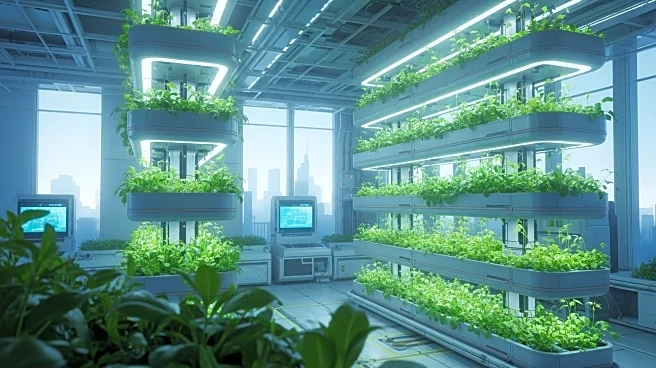What is the story about?
What's Happening?
The Vertical Farming World Congress is set to open in Amsterdam, highlighting the industry's current challenges and opportunities. Richard Hall, Chair of FoodBev Media, emphasizes the need for government recognition and support for vertical farming as a contributor to global food systems. The industry faces rising energy costs, particularly in Europe, due to geopolitical tensions. Despite these challenges, the sector is expanding its crop range, with leafy greens, salad mixes, microgreens, and strawberries leading the way. Hall stresses the importance of focusing on a few crops to establish competitive leadership.
Why It's Important?
Vertical farming represents a significant shift in agricultural practices, offering sustainable solutions to food production. However, the industry's growth is hindered by high energy costs and lack of government support. Recognizing vertical farming as a viable agricultural method could lead to increased investment and policy support, benefiting both the industry and consumers. The focus on energy partnerships and crop specialization could enhance the sector's resilience and competitiveness, potentially transforming food supply chains and reducing environmental impact.
What's Next?
The industry is likely to push for more government incentives and research support to level the playing field with traditional agriculture. Energy management will remain a critical focus, with potential partnerships in renewable energy sources. The sector may also see increased collaboration to establish common standards and sustainability practices, which could accelerate growth and consumer acceptance.















